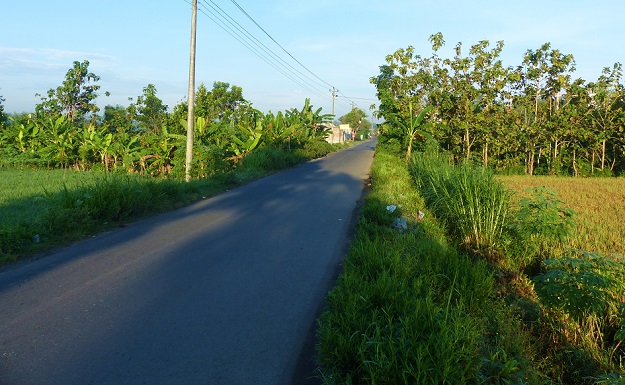Groundbreaking Trans-Sumatra Toll Road; Infrastructure Projects Indonesia
Today, Indonesian President Joko Widodo will lay the first stone for the groundbreaking ceremony of the 2,700 km Trans-Sumatra toll road project, linking Lampung to Aceh on the resource-rich island of Sumatra (Indonesia’s second-largest island in terms of geographic size). The toll road, which is one of the key priority infrastructure projects for the Indonesian government, is estimated to require a total of IDR 300 trillion (USD $23.1 billion) of investment. Ten years after parts of the toll road were first tendered, construction can finally commence.
Various matters caused the long delay in execution of the Trans-Sumatra toll road project. Most importantly are (lack of) financial resources and land acquisition. Due to the (1) long-term commitment, (2) the costly investment required in combination with the low internal rate of return, and (3) land acquisition troubles, the private sector was not interested in the project. Therefore, the government decided to finance the project through the combined financial power of the central government, regional governments (the toll road will stretch across ten provinces on Sumatra), and state-owned enterprises (banks and construction companies).

Previously it was reported that the central government assigned Hutama Karya, a large state-owned construction firm, to construct the project. The company received a capital injection from the government. More recently, State-Owned Enterprises Minister Rini Soemarno stated that four state-owned companies (Hutama Karya, Jasa Marga, Waskita Karya and Wijaya Karya) will be tasked to jointly commission the project.
Although certain sections of the toll road may be completed by 2018, the whole Trans-Sumatra toll road is estimated to be completed by 2025.
President Joko Widodo (“Jokowi”) will be accompanied by Indonesian Minister of Public Works and Public Housing Basuki Hadimuljono and State-Owned Enterprises Minister Rini Soemarno at the groundbreaking ceremony in Lampung (South Sumatra). Widodo said that more infrastructure projects are planned to see groundbreaking in May 2015.
Sumatra, which is rich in palm oil, coffee, rubber, coal, tin and oil & gas, has been designated as a "center for production and processing of natural resources and energy reserve" in the first economic corridor of the Masterplan for Acceleration and Expansion of Indonesia's Economic Development (MP3EI).
Infrastructure Development Indonesia
Indonesia is plagued by a lack of quality and quantity of infrastructure, thus resulting in high logistics costs making Indonesian businesses less competitive compared to regional counterparts (which constitutes a problem ahead of the implementation of the ASEAN Economic Community as regional competition will increase). Moreover, the lack of adequate infrastructure makes investors think twice before deciding to invest in Indonesia, particularly as in the more remote areas an investment project will require costly additional infrastructure investment. Therefore investors were happy to learn about Widodo’s eagerness to push for infrastructure development across Indonesia during his presidential campaign in 2014. However, recently doubts started to emerge about the achievability of his ambitious infrastructure targets.
Over the next five years, the Widodo administration aims to construct 5,500 km of railways, 2,600 km of roads, 1,000 km of toll roads, 49 dams, 24 seaports, and power plants with a combined capacity of 35,000 MW. An ambitious target. In the Revised 2015 State Budget, the government reserved IDR 290 trillion (USD $22.5 billion) for infrastructure spending.
Government-led infrastructure development is also regarded as the key for accelerated economic growth in Southeast Asia’s largest economy. Over the past couple of days foreign investors have been selling Indonesian stocks, resulting in severe losses on the benchmark Jakarta Composite Index on mounting doubts that economic growth of Indonesia will not rebound this year (particularly after seeing weak Q1-2015 financial results of several large companies) but continue its slowing economic growth trend that has been seen since 2011. Indonesia’s export performance cannot improve considering the sluggish world economy, while household consumption (which already accounts for about 55 percent of the country’s total economic growth) has been negatively impacted by people’s weakening purchasing power amid the relatively high interest rate environment. Indonesia's central bank (Bank Indonesia) has set its key rate at 7.50 percent in an effort to combat high inflation and curb the country's current account deficit.
Therefore, market participants have high hopes for government-led infrastructure development as this would cause a multiplier effect in the economy and thus lead to accelerated growth (Widodo targets +7 percent GDP growth by 2019). However, after having been in office for about two quarters, market participants have been somewhat disappointed with the number of key infrastructure projects that have been initiated.
Referring to infrastructure projects, Widodo indeed acknowledged that at the beginning of his administration (in October 2014) there have been a number of obstacles, perhaps most importantly the availability of financial resources to initiate these projects. However, after the Revised 2015 State Budget was approved by Indonesia’s House of Representatives (DPR) in February 2015, Widodo is convinced that the promised infrastructure development will start soon.
